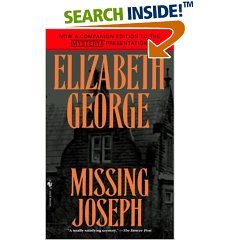.bmp) In theory, I ought to find The Queen's Fool absolutely riveting: set in the volatile, intrigue-ridden England of Edward VI and Mary I, the story encompasses war, religious upheaval, sex, heartbreak, diplomacy and political maneuvering of the highest order. The title character, Hannah Green, is herself playing a role, hiding her Jewish faith and her sex as she and her father try to make a new life in England after fleeing the Spanish Inquisition. Hannah's reputation for divining the future lands her squarely into the center of the royal court, required to spy for Lord Robert Dudley, for whom she has more than a passing fancy. When Mary ascends the throne, Hannah finds herself drawn to the queen's strong character, yet endangered by the same woman's determination to rid England of its Protestant faith. Torn between a safe, but mundane life with her betrothed and the intrigues of the court, Hannah's fateful decisions place her at the very center of the turbulent events surrounding her.
In theory, I ought to find The Queen's Fool absolutely riveting: set in the volatile, intrigue-ridden England of Edward VI and Mary I, the story encompasses war, religious upheaval, sex, heartbreak, diplomacy and political maneuvering of the highest order. The title character, Hannah Green, is herself playing a role, hiding her Jewish faith and her sex as she and her father try to make a new life in England after fleeing the Spanish Inquisition. Hannah's reputation for divining the future lands her squarely into the center of the royal court, required to spy for Lord Robert Dudley, for whom she has more than a passing fancy. When Mary ascends the throne, Hannah finds herself drawn to the queen's strong character, yet endangered by the same woman's determination to rid England of its Protestant faith. Torn between a safe, but mundane life with her betrothed and the intrigues of the court, Hannah's fateful decisions place her at the very center of the turbulent events surrounding her.And yet...
Honestly, I just couldn't get into The Queen's Fool. I tried (it's a 500 page book, and I stuck with it to the end), but Philippa Gregory's epic of Tudor intrigue just never really came to life for me. The whole purpose of a historical novel is to recreate a particular world, mixing the well-known figures with characters of the author's imagination. It's especially tricky with characters that are as well-known as Elizabeth I and her fractious family, and to her credit, Gregory has done her homework regarding history and life at the court. But they all still feel somehow...flat, I guess would be the best way to describe it. I had read another of Gregory's novels, The Virgin's Lover, a few years ago, and the feeling was the same. Another issue centers on Hannah. Gregory goes to almost absurd lengths to place Hannah at the center of the action, undermining any sense of belief in her character. Was it possible for someone like Hannah to witness Elizabeth's trysts with Thomas Seymour, be summoned to face charges of heresy and be present at the fall of Calais? It might give Gregory the opportunity to describe those events, but it doesn't work as fiction.
The Queen's Fool is part of Gregory's retelling of the Tudor era, the latest of which is The Boleyn Inheritance. Gregory's books always seem to hit the bestseller lists, which isn't surprising given their emphasis on intrigue and scheming. In spite of Gregory's efforts, though, her Elizabethan world still remains impervious.
.bmp)


.jpg)